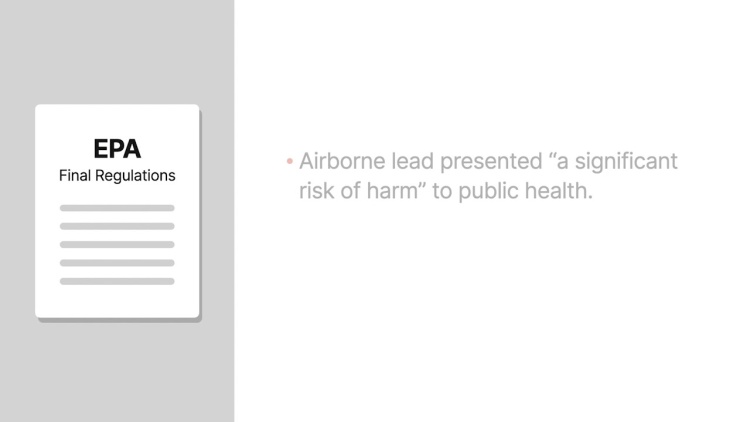Ethyl Corp. v. Environmental Protection Agency
United States Court of Appeals for the District of Columbia Circuit
541 F.2d 1 (1976)
- Written by Lauren Petersen, JD
Facts
The Clean Air Act Amendments of 1970, 42 U.S.C. § 7401, gave the Environmental Protection Agency (EPA) (defendant) authority to protect public health by regulating fuel additives that produced dangerous emissions. The EPA sought to address health concerns relating to lead emissions from leaded fuel. Pursuant to the requirements for informal rulemaking under the Administrative Procedure Act (APA), 5 U.S.C. § 553, the EPA gave notice of its intent to propose rules relating to lead fuel additives, then promulgated proposed regulations for public comment. In 1973, the EPA published final regulations for lead emissions, together with data and research in support of the regulations. The APA provides standards for judicial review of a government agency’s actions in § 706(2)(A), permitting a reviewing court to set aside agency actions, findings, or conclusions if found to be arbitrary or capricious. The Ethyl Corporation and other lead-additive producers (collectively, Ethyl) (plaintiffs) appealed the EPA’s emissions regulations to the United States Court of Appeals for the District of Columbia Circuit, arguing, among other things, that the EPA’s emissions regulations were arbitrary and capricious. The court found in favor of Ethyl and set aside the regulations. The EPA petitioned for, and was granted, a rehearing en banc by the court, vacating the prior judgment.
Rule of Law
Issue
Holding and Reasoning (Wright, J.)
Concurrence (Bazelon, C.J.)
Concurrence (Leventhal, J.)
Dissent (Wilkey, J.)
What to do next…
Here's why 905,000 law students have relied on our case briefs:
- Written by law professors and practitioners, not other law students. 47,100 briefs, keyed to 995 casebooks. Top-notch customer support.
- The right amount of information, includes the facts, issues, rule of law, holding and reasoning, and any concurrences and dissents.
- Access in your classes, works on your mobile and tablet. Massive library of related video lessons and high quality multiple-choice questions.
- Easy to use, uniform format for every case brief. Written in plain English, not in legalese. Our briefs summarize and simplify; they don’t just repeat the court’s language.





